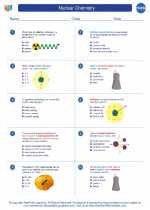Terrestrial
Terrestrial in the context of science typically refers to anything related to the Earth or land.
Terrestrial Ecosystems
Terrestrial ecosystems are those found on land. They can be classified into various types such as forests, grasslands, deserts, and tundra. These ecosystems are home to diverse organisms and play a crucial role in the carbon and water cycles.
Terrestrial Planets
In astronomy, terrestrial planets are those that are primarily composed of silicate rocks or metals. In our solar system, Mercury, Venus, Earth, and Mars are considered terrestrial planets.
Terrestrial Chemistry
In chemistry, terrestrial substances are those that are commonly found on Earth's surface. This includes elements such as oxygen, carbon, hydrogen, nitrogen, and various compounds like silicates, carbonates, and oxides.
Study Guide
To understand the concept of terrestrial, it's essential to study the following topics:
- Terrestrial ecosystems and their characteristics
- Comparison of terrestrial and non-terrestrial planets
- The composition and properties of terrestrial substances
[Terrestrial] Related Worksheets and Study Guides:
.◂Chemistry Worksheets and Study Guides High School. Nuclear Chemistry

 Worksheet/Answer key
Worksheet/Answer key
 Worksheet/Answer key
Worksheet/Answer key
